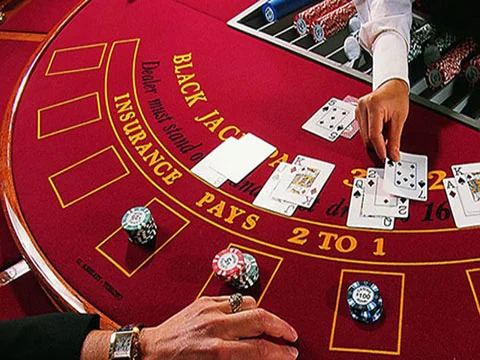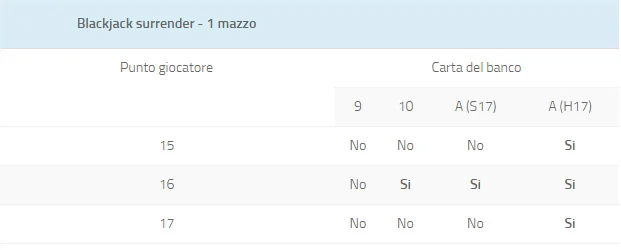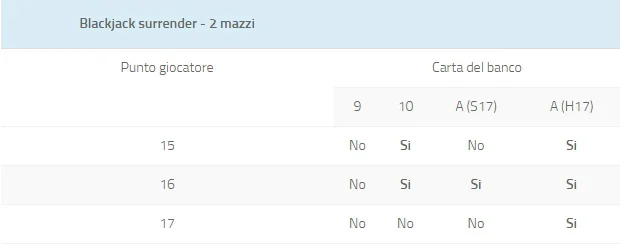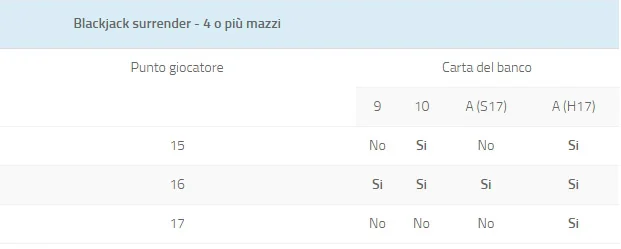When is it convenient to leave the game to the surrender?

Leave the game to get half the bet. Learn when it is better to use the special action of the Surrender Blackjack.
Over the years the Blackjack game has seen the birth of a discreet number of variants, especially in online casinos. The "surrender" is undoubtedly one of the most interesting Blackjack types of Blackjack, because it provides that the player has the opportunity to abandon his hand and get back from the casino half of the bet carried out. This possibility, if exploited in the right way, can further reduce the advantage of the counter.
We remember that In Blackjack Surrenter the player has the opportunity to surrender only after the distribution of the first cards, that is, after seeing the two cards of your hand and the discovery card of the dealer. The game strategy to be adopted changes depending on the fact that the table provides for a "Surrender Late" or a "Early Surrenter": in the first case you can only surrender after the counter has carried out the Blackjack check, in the second case It is possible to do it even before. Since the most widespread version is "Late Surrenter", the following table tables refer to this type of table.
In the following we present 3 tables of conduct, which vary on the basis of the number of decks used at the table and on the obligation of the counter to be on an Soft 17 (S17)* or a hard 17 (H17)*. The tables indicate when it is mathematically convenient to surrender; In all situations that are not examined, it is not convenient to do so.
Surrender Blackjack with 1 deck

Surrender Blackjack with 2 decks

Surrender Blackjack with 4 decks

* In the Blackjack, a score of 17 is considered "soft 17" that will certainly not be busy asking for another card, therefore for example at+6 or 10+7. On the contrary, a "Hard 17" is a score of 17 that could get busy adding another card, for example 8+9.
As you can see, there are situations in which the player has so little chance of beating the bench that it is better to sacrifice half the bet made rather than risk the entire amount aimed. As usual, it is a mathematical expectation, in fact it is not said that the strategy is always perfect in the single blow, but in the long run it certainly brings discrete advantages.
